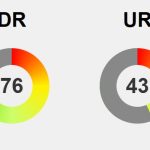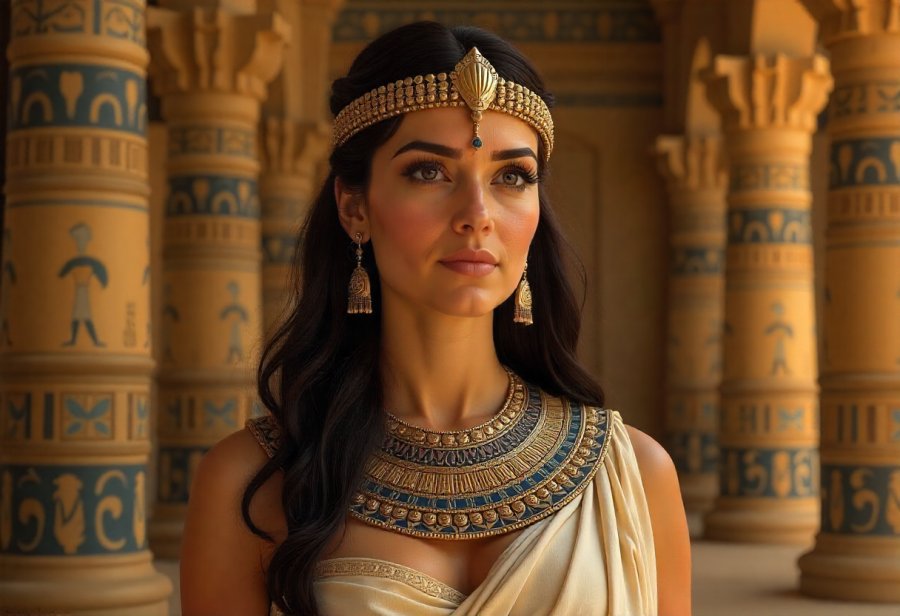Astrology claims to unveil your true nature through celestial patterns, but can the stars genuinely influence who you are and your life’s path? This exploration reveals how ancient civilizations, from Babylon to Egypt and Greece, crafted intricate systems linking planets and personality traits, creating a symbolic language that persists today. Despite overwhelming scientific evidence dismissing celestial influence on individual behavior, millions turn to horoscopes and birth charts for insight, comfort, and a sense of connection to a larger cosmic order. The enduring appeal lies in astrology’s capacity to reflect our inner worlds and help articulate complex feelings, even as studies show vague descriptions often fit many people—a psychological phenomenon known as the Forer effect. Is astrology a meaningful mirror for self-reflection or simply a cultural narrative? This compelling tension invites us to consider whether the stars guide us or if we seek order and purpose amid life’s uncertainties through their stories.
Unlocking the Cosmic Blueprint: How Celestial Patterns Shape Our Lives
Many people find astrology intriguing because it suggests that the positions of celestial bodies—like stars and planets—can shape who we are and influence the course of our lives. This idea isn’t new; for thousands of years, different cultures have looked to the sky for guidance, believing that the cosmos holds clues about our personality, destiny, and purpose. Astrology proposes that these celestial patterns, which we observe through something called a birth chart, are more than just distant lights—they reflect our inner selves and the forces that drive us.
The practice of astrology dates back to ancient civilizations such as Babylon, Egypt, and Greece. Early astronomer-priests carefully tracked the movements of celestial bodies to predict seasonal changes and important events. Their work wasn’t solely about understanding the night sky; it was deeply intertwined with religion and divination, rooted in the belief that the universe was a divine order mirroring natural laws. The Babylonians, for example, created detailed star catalogs and divided the sky into twelve sections associated with specific constellations, laying the groundwork for what we now call the zodiac.
As astrology spread across different cultures, it absorbed local beliefs and traditions. Egyptians linked planetary movements to gods and mythologies, creating stories that connected celestial bodies to divine forces. Meanwhile, Greeks developed interpretations that blended astrology with philosophy and medicine, giving the practice a more structured framework. The work of Claudius Ptolemy in the 2nd century CE, especially his influential manual *Tetrabiblos*, helped formalize astrology by framing celestial influences as signals that could be read to understand personality, health, and fate. His writings made astrology more systematic and enduring.
At its core, astrology is built on the idea that planets and stars emit specific energies impacting human traits and life events. For instance, Mars was associated with aggression and action, while Venus symbolized love and harmony. The zodiac signs—based on the sun’s position at birth—offer broad personality profiles, like confident Leos or introspective Scorpios. But astrology’s deeper layers involve analyzing the precise positions of planets and their relationships, creating a detailed map of the sky at the moment of birth. These celestial configurations are believed to reveal nuanced aspects of our character and life path.
Despite the rise of modern science and skepticism, astrology remains popular because it provides a symbolic language that many find meaningful. People turn to horoscopes, birth charts, and planetary positions for insights into themselves, their relationships, and their future. It offers a sense of connection to a larger, divine order—something comforting in uncertain times. Whether or not the stars truly shape our destiny, astrology continues to serve as a mirror reflecting our inner worlds and universal hopes.
Ancient Stars, Divine Orders: The Origins and Foundations of Astrology
Astrology’s roots stretch back thousands of years, with its earliest origins found in ancient Babylon around 2000 BCE. Early astronomer-priests meticulously observed the night sky, tracking celestial movements to predict seasonal shifts and significant events. Their work extended beyond mere astronomy; it was intertwined with religion and divination, based on the belief that the universe reflected a divine order. The Babylonians crafted detailed star catalogs and divided the sky into twelve sections associated with specific constellations, laying the foundation for the zodiac system we recognize today.
As astrology spread across different regions, it absorbed local beliefs and mythologies. Egyptians linked planetary movements to gods and mythic stories, creating symbolic narratives connecting celestial bodies to divine forces. Meanwhile, Greek thinkers developed interpretations that blended astrology with philosophy and medicine, giving the practice a more structured, systematic approach. Claudius Ptolemy’s *Tetrabiblos*, written in the 2nd century CE, played a pivotal role in formalizing astrology. His work framed celestial influences as signals that could be read to understand personality, health, and fate, helping astrology evolve into a more organized discipline.
At its core, astrology is founded on the idea that planets and stars emit specific energies affecting human traits and life events. For example, Mars is associated with aggression and action, while Venus symbolizes love and harmony. The zodiac signs, based on the sun’s position at birth, provide broad personality profiles—like Leo’s confidence or Scorpio’s introspection. But astrology delves deeper by analyzing the precise positions of planets and their relationships, creating a detailed map of the sky at the moment of birth. These celestial configurations are believed to reveal nuanced aspects of our character and life trajectory.
Different cultures contributed their unique perspectives, enriching astrology’s tapestry. Ancient China linked planetary movements with medicine and philosophy, emphasizing harmony between humans and the cosmos through the Chinese zodiac’s 12 animals. In India, Vedic astrology developed complex methods for interpreting planetary influences, karma, and life cycles, relying on detailed birth charts. Despite regional differences, the core belief remained: the cosmos reflected a divine or natural order that influences human life, guiding choices and shaping destinies.
Despite the rise of modern science and the shift toward empirical evidence, these ancient ideas about celestial influence have left a lasting mark. For centuries, scholars and practitioners refined astrology’s symbolic language, turning it into a system of stories and meanings that remains influential today. The notion that celestial bodies emit influence, shaping our character and destiny, persisted even as scientific understanding advanced. This enduring legacy underscores astrology’s deep roots in human history as a way to find order and purpose through the stars.
Stars and Skepticism: The Modern Science and Beliefs Behind Astrology
Today, astrology remains popular despite overwhelming scientific evidence that challenges its claims. Millions of people consult horoscopes, birth charts, and planetary positions daily, often using them as tools for self-reflection or guidance. Many see star signs as revealing core traits—like Aries being bold or Pisces being empathetic—and rely on these insights to navigate relationships or make decisions. However, rigorous scientific studies repeatedly fail to find any measurable link between celestial positions and individual behavior or life outcomes.
Even with this lack of empirical support, astrology’s appeal endures. Its symbolic language offers a way to find meaning and reassurance in uncertain times. Personal horoscopes and detailed birth charts can serve as mirrors, helping individuals articulate feelings or patterns they observe in themselves. This emotional resonance keeps astrology relevant, especially when people seek comfort or a sense of connection to a larger cosmic order beyond scientific explanation.
In recent years, a more sophisticated approach has emerged through apps and online tools that generate highly personalized charts. These detailed analyses aim to provide deeper insights into personality and life paths, making astrology feel more accurate and relevant. This shift reflects a desire for guidance that feels specific and meaningful, even if it remains rooted in symbolism rather than scientific proof. Many users find comfort in believing that the stars can illuminate their personal journey.
Psychological factors also play a significant role in astrology’s persistence. Cognitive biases, such as the Forer effect, explain why vague descriptions often seem accurate. When people read general traits that could apply to almost anyone, they tend to see themselves in the descriptions—fueling their belief in astrology’s accuracy. Media, cultural traditions, and online communities reinforce these ideas, creating a feedback loop that maintains interest.
Despite the popularity, science consistently dismisses astrology as a pseudoscience. Controlled experiments and statistical analyses have found no evidence linking planetary alignments to personality traits or life events. The broad, vague nature of horoscopes exemplifies this, as their descriptions often fit many people, not because of cosmic influence but due to the power of generalization. This demonstrates that astrology’s appeal is more psychological and cultural than based on any real celestial connection.
While science remains skeptical, many acknowledge astrology’s cultural significance. For some, it offers a symbolic language for exploring identity and purpose, helping articulate feelings and patterns that are otherwise hard to express. Recognizing its limitations as a system of symbols rather than facts allows us to appreciate its role in human culture. It remains a reflection of our enduring quest to find order, meaning, and connection in a complex world.
For those interested in exploring astrology further, many resources can provide in-depth insights and personalized readings. If you’d like to learn more about how astrology functions and its place in culture, you can visit this comprehensive guide on the science and beliefs behind astrology.
Decoding the Sky: Engaging with Astrology Through Reflection and Insight
Engaging with astrology often starts with exploring your birth chart, which maps the positions of planets and stars at the exact moment you were born. Interpreting this chart involves understanding what each planetary placement and aspect signifies—like how Mercury’s position might influence communication or how Venus relates to love and harmony. Many see this process as decoding a cosmic blueprint that reveals insights into their strengths, challenges, and potential life patterns.
Most beginners begin with their sun sign, the zodiac sign the sun occupied when they were born. These broad descriptions—like assertive Aries or intuitive Pisces—are easy to grasp and often resonate on some level. This simple starting point can spark curiosity, encouraging deeper exploration into the more complex layers of astrology, such as moon signs, rising signs, and planetary aspects.
People often turn to astrology as a tool for decision-making, checking planetary positions to identify auspicious dates or understand relationship dynamics. The idea is that certain cosmic alignments can influence luck, challenges, or emotional states, providing a sense of guidance. While interpretations vary, many find comfort in believing that the stars can help clarify their choices or shed light on subconscious patterns they might not otherwise see.
Engagement with astrology also involves reflection rather than prediction. It invites us to consider how planetary influences might mirror our inner worlds or reveal hidden tendencies. This perspective transforms astrology into a language of self-awareness—highlighting what we value or what we might want to change—rather than a fortune-telling system. It encourages curiosity and openness, fostering a mindset that values insight over certainty.
However, it’s easy to fall into the trap of accepting vague or overly broad statements as deeply personal truths. The Forer effect explains how people recognize themselves in general descriptions that could fit many others, which can make astrology seem more accurate than it truly is. Being aware of this tendency helps maintain a balanced perspective—appreciating astrology as a symbolic language for self-reflection rather than a definitive guide.
A healthy approach combines curiosity with critical thinking. Use astrology to explore your feelings, patterns, and motivations, but avoid relying on it for absolute predictions. Recognize its role as a tool for insight, not fact. By questioning vague generalizations and staying mindful of cognitive biases, you can enjoy astrology’s benefits without losing sight of scientific skepticism.
Ultimately, engaging with astrology is about embracing its symbolic richness while understanding its limitations. It offers a way to articulate and explore your inner landscape, providing comfort and connection. When approached thoughtfully, astrology can be a meaningful part of your journey of self-discovery, helping you reflect on your life and find your place in the larger cosmos.
Stars, Symbols, and the Search for Self: Reflecting on Astrology’s Role in Human Meaning
While astrology offers a captivating narrative about celestial influence, its claims to reveal the true self are highly debated. Scientific studies have repeatedly found no consistent evidence linking planetary positions or star signs to personality traits or life outcomes. Many descriptions in horoscopes and birth charts are so broad they could apply to almost anyone—an effect known as the Forer effect—highlighting that astrology’s accuracy is more about psychological bias than cosmic truth.
Despite the lack of scientific backing, millions continue to find value in astrology. For some, it acts as a mirror, helping them reflect on their strengths, weaknesses, and life choices. Its symbolic language can articulate complex feelings or patterns that are otherwise hard to express, offering comfort and a sense of connection to something larger. This cultural and emotional resonance keeps astrology relevant, especially during uncertain or challenging times.
The persistence of astrology underscores a fundamental human trait: our deep desire for meaning and order amid chaos. While science dismisses celestial influence on personal traits, the stories and symbols of astrology serve as a narrative framework—helping us make sense of our experiences and find coherence in our lives. It’s a way to explore identity, purpose, and connection, providing a comforting structure for navigating the complexities of human existence.
Approaching astrology with a balanced mindset allows us to appreciate its cultural significance without overestimating its claims. Recognizing its role as a symbolic language rather than a science helps prevent misconceptions. By questioning vague generalizations and being aware of cognitive biases, we can enjoy astrology as a tool for self-reflection and insight—without losing sight of the evidence that challenges its literal accuracy.
In the end, the debate over astrology’s ability to reveal the true self reflects a universal human quest: the need to understand who we are and where we belong. Whether viewed as a spiritual guide, a cultural tradition, or a mirror of our inner worlds, astrology taps into this longing for meaning. Embracing its stories and symbols as part of our ongoing journey enriches our understanding of ourselves and our place in the universe, even if the stars themselves aren’t the ultimate architects of our destiny.





